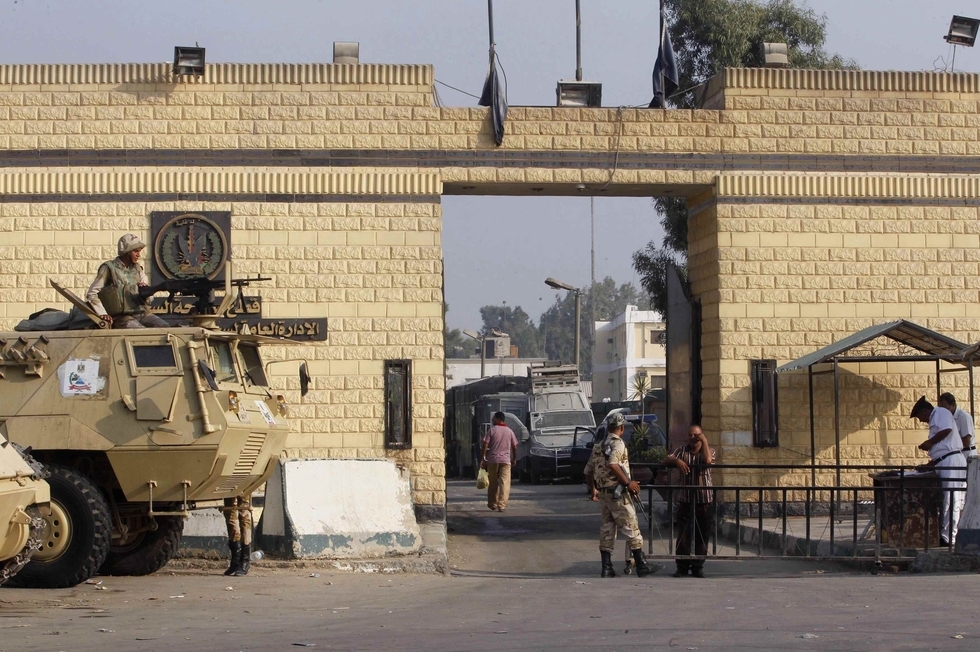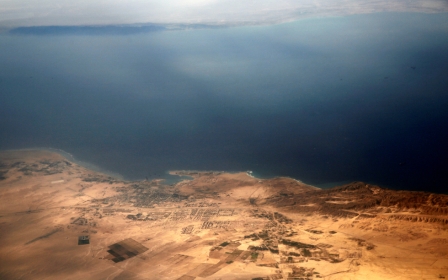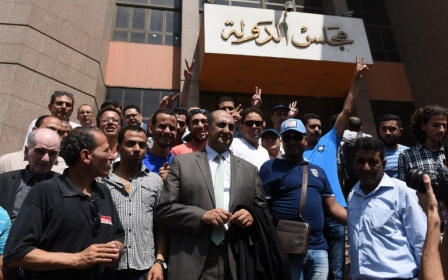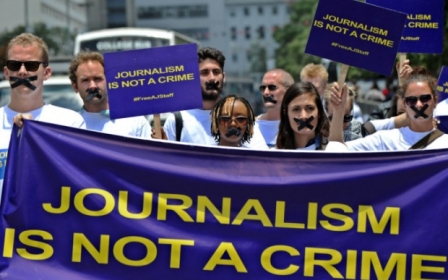Top Egyptian official kills himself in prison amid corruption case

A top-level member of the Egyptian judiciary has killed himself in prison, Egyptian officials said on Monday, days after being arrested for corruption.
Wael Shalabi resigned as head of Egypt’s State Council, the judicial body that determines cases related to the Egyptian state, on Saturday evening, and was arrested by police minutes later as he left his offices for the last time.
Shalabi was arrested on suspicion of involvement in a high-profile bribery case, which has also seen top officials from the State Council detained.
Judicial sources close to the case told the Egyptian press on Monday morning that Shalabi had committed suicide in prison, but did not give details of exactly how or when he took his own life.
Security sources told news site al-Wafd that Shalabi had hanged himself using a scarf.
The sources said that Shalabi had on Sunday confessed to being involved in corruption while head of the State Council.
Walid Ismail, judiciary correspondent of al-Watan newspaper, said forensic investigators were on their way to the scene to carry out a post-mortem examination.
Ban issued on reporting of story
Minutes after Shalabi’s death was reported, the attorney general issued a gag on the story, ordering print and online outlets not to publish anything related to the corruption case.
The case under which he was detained, known in the Egyptian press as the “Major Bribery Case,” was probing allegations of major financial irregularities within the State Council and “failing to fulfil the duties of office”.
The head of the body’s procurement section, Jamal al-Din Ibrahim al-Laban, as well as the heads of two private businesses, who have not been publicly named, have also been arrested as part of the same case.
The State Council has been involved in some of the most high-profile court cases in Egypt in recent years, including the controversial issue of two Red Sea islands that the government plans to hand over to Saudi Arabia.
The State Council had in June overturned an agreement signed by President Abdel Fattah al-Sisi to hand control of the islands of Tiran and Sanafir over to Saudi Arabia, which had sparked some of the biggest street protests seen in years.
However, on Saturday, a separate appeals court overturned that decision in a major boost for the government.
New MEE newsletter: Jerusalem Dispatch
Sign up to get the latest insights and analysis on Israel-Palestine, alongside Turkey Unpacked and other MEE newsletters
Middle East Eye delivers independent and unrivalled coverage and analysis of the Middle East, North Africa and beyond. To learn more about republishing this content and the associated fees, please fill out this form. More about MEE can be found here.




